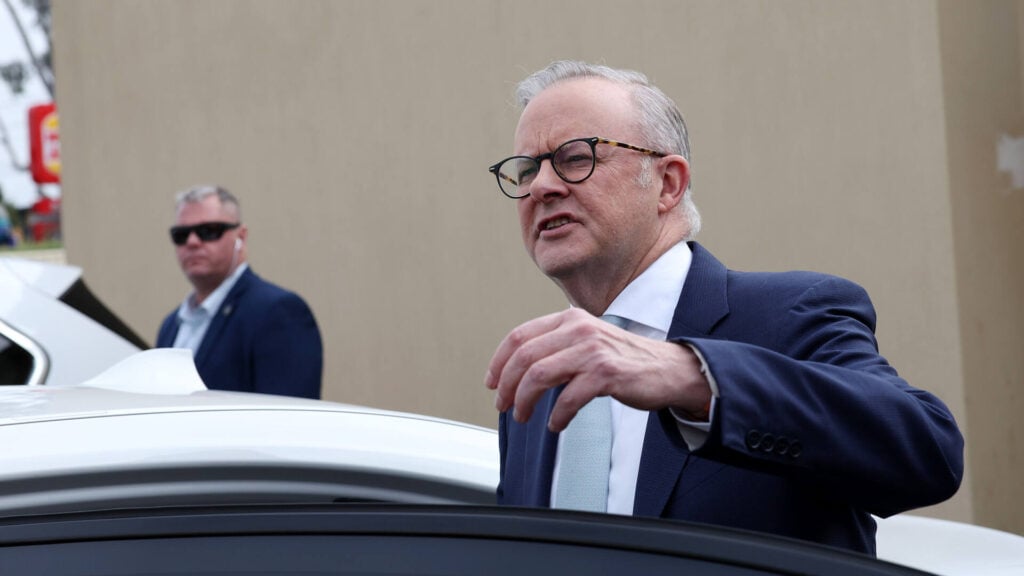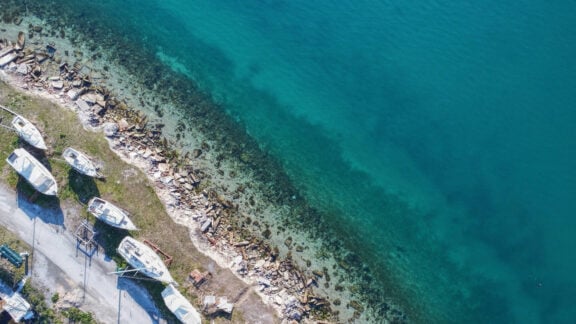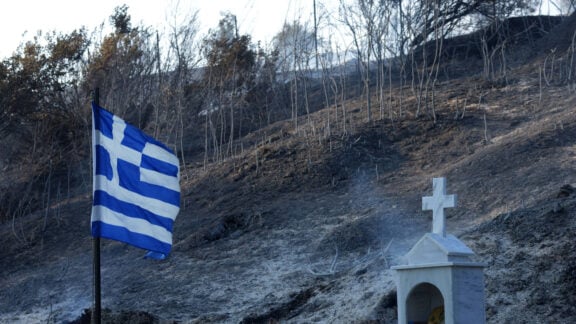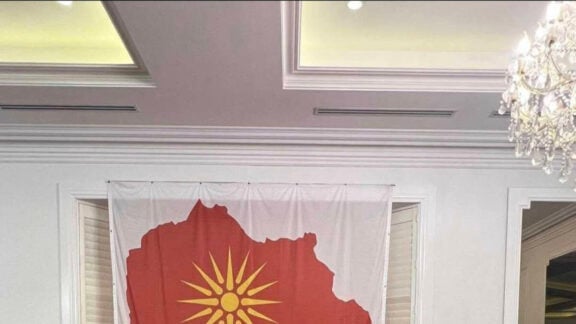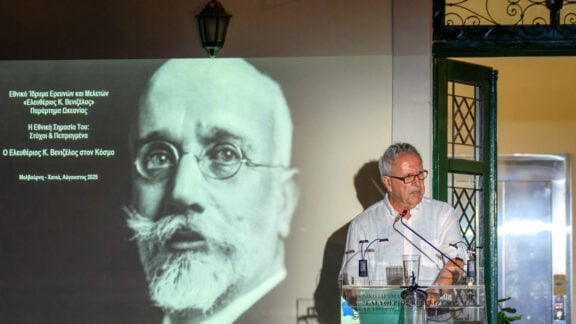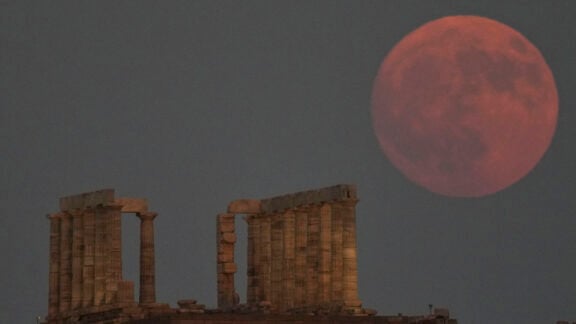Australia seems to be gearing up to follow several major Western powers in recognising a Palestinian state at an upcoming United Nations meeting. Today, The Age reported that Prime Minister Anthony Albanese may be hours away from recognising a Palestinian state. According to the masthead, people close to the PM have indicated that Albanese is about to recognise a Palestinian state.
G7 nations France, the UK and Canada have committed to recognising Palestine at the United Nations General Assembly in September amid growing pressure for Israel to end the war in Gaza.
Australia has had a significant shift in rhetoric in recent weeks, Australian National University professor Donald Rothwell said.
“Everything at the moment is pointing towards Australia positioning itself to make an announcement of the recognition of Palestine by the time of the (meeting),” he told AAP.
Albanese’s softening on Palestinian state recognition
The Albanese government had been “softening” its position on recognising Palestine in the past two weeks, Prof Rothwell noted.
“The prime minister is also actually going to the United Nations General Assembly, and it’s a very long time since the Australian prime minister has gone there,” he said.
“I’m sure that the prime minister is going there wanting to announce some significant, and this will clearly be a significant announcement.”
Prof Rothwell also pointed to Foreign Minister Penny Wong’s recent stark comments about the humanitarian situation in Gaza and Israel’s plan to occupy the territory.
“The two-state solution is really just slipping away as a result of Israel’s campaign, and Australia doesn’t want to lose that opportunity,” he said.
In a joint statement with several other nations on Saturday, Senator Wong said the countries were committed to implementing a two-state solution to ensure peace for the Israeli and Palestinian people.
“A political resolution based on a negotiated two-state solution requires the total demilitarisation of Hamas and its complete exclusion from any form of governance in the Gaza Strip, where the Palestinian Authority must have a central role,” the statement said.
Wong, Burke signal shift in government stance
Home Affairs Minister Tony Burke appeared on Sunday to soften the government’s stance on the future role of Hamas, a listed terrorist organisation in Australia, in a Palestinian state.
He noted terrorist forces had occupied other countries that Australia continued to recognise, citing Syria and Iraq as examples.
Prof Rothwell said Syria and Iraq were different from Palestine because Australia had recognised them long before ISIS emerged and took control of large parts.
“The two-state solution is really just slipping away as a result of Israel’s campaign, and Australia doesn’t want to lose that opportunity.” Prof Rothwell
“The minister is making the point … at some point in time, Hamas might play a role in that Palestinian state but that would not see Australia revisit its recognition,” he said.
Mr Burke might also have been signalling further nuance in Australia’s developing position – that it might be prepared to move towards recognition of Palestine while Hamas continued to have a role in Gaza, Prof Rothwell said.
A war with no strategic aim, say experts
The challenge remains huge, given what seems to have become increasingly a scorched-earth policy in Gaza pursued by Israeli Prime Minister Benjamin “Bibi” Netanyahu. Hamas are still in Gaza, over and the bodies keep piling up – over 60,000 deaths and 140,000 wounded, according to the Hamas-run health agency, which does not distinguish between combatants and civilians.
Many Israeli hostages are still in captivity, and Israel is “squandering” its gains, such as the destruction of Hezbollah and humiliation of Iran, according to international relations expert, Senior Fellow at UCLA, Dalia Dassa Kaye, writing for Foreign Affairs magazine. The expert says that Israel has lost strategic focus, and cracks are appearing in Netanyahu’s coalition cabinet, over plans to fully occupy the Strip. Israelis are tired of two years of war, want all hostages by Hamas released, and are sickened by what seems to have become endless carnage.
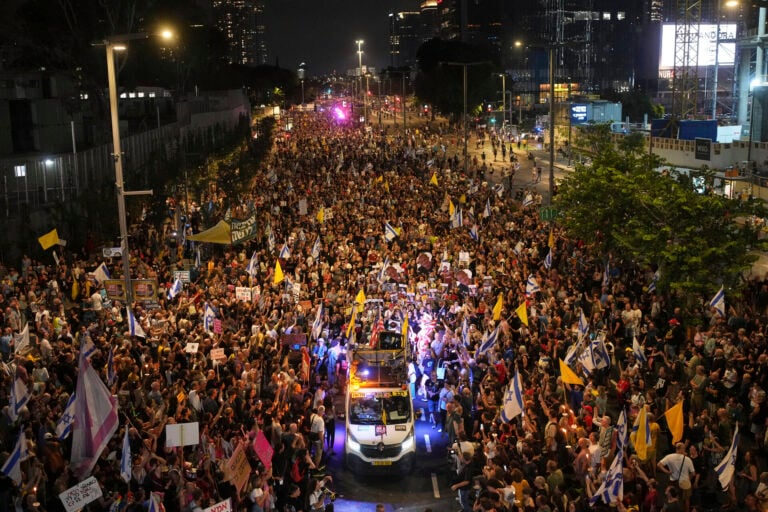
Yesterday, thousands of protesters in support of hostages took to the streets of Jerusalem and marched towards Prime Minister Benjamin Netanyahu’s residence to voice their anger over his government’s plan to fully occupy Gaza City according to Haaretz.
Former soldier, Max Kresch, held a sign that read “I refused”.
“We’re over 350 soldiers who served during the war and refused to continue to serve in Netanyahu’s political war,” he told the BBC.
Protests took place across Israel in cities including Haifa and Tel Aviv, in an attempt to assuage his right-wing coalition partners in the cabinet.
Mitsotakis urges ceasefire, sends aid to Gaza
Prime Minister Mitsotakis of Greece has stopped short of following France, given Greece’s strong relationship with Israel and Arab states but has reiterated calls for a ceasefire and more aid to the people of Gaza.
According to Kathimerini, two Hellenic Air Force transport aircraft, a C-130 and a C-27, delivered over eight tons of humanitarian aid to Gaza on Saturday, amid a worsening hunger crisis. Departing from Elefsina on Friday, the planes first landed in Amman, Jordan, carrying both food supplies and personnel from the Air Supply Battalion (TENEF), a specialist airborne operations unit.
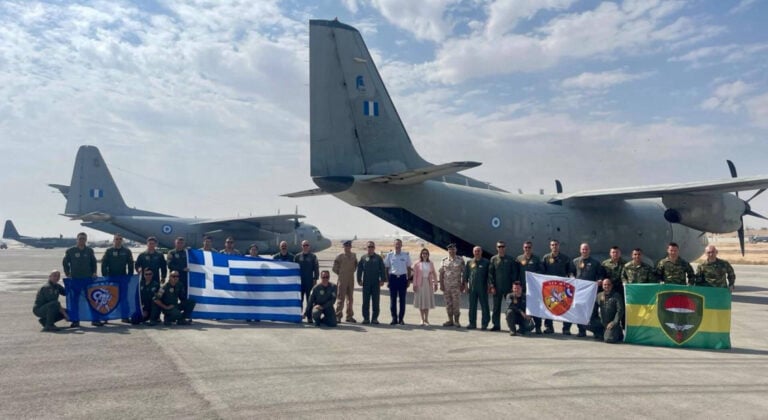
The aid packages—mostly food—were dropped over designated areas in Gaza before the aircraft returned to base. The mission, coordinated with Jordanian and Israeli authorities, was planned from early last week.
The operation followed talks between Athens and Jerusalem and came shortly after Prime Minister Kyriakos Mitsotakis spoke with Palestinian Authority President Mahmoud Abbas. Mitsotakis reaffirmed Greece’s support for a two-state solution and the Palestinian Authority as the legitimate representative of the Palestinian people, while expressing readiness for further humanitarian action.
“Greece will continue to undertake initiatives for the immediate cessation of hostilities, the release of hostages, and the unhindered flow of humanitarian aid to Gaza. It is the duty of all of us to put an end to human suffering immediately,” Greek PM Mitsotakis
“The operation was organised in collaboration with countries from the European Union and the Middle East, aiming to support the basic needs of people in the afflicted region.”
“Greece will continue to undertake initiatives for the immediate cessation of hostilities, the release of hostages, and the unhindered flow of humanitarian aid to Gaza. It is the duty of all of us to put an end to human suffering immediately,” he said.
Mitsotakis stressed that Greece will continue to push for a ceasefire, the release of hostages, and the free flow of aid. “It is the duty of all of us to immediately stop the human suffering,” he said.
